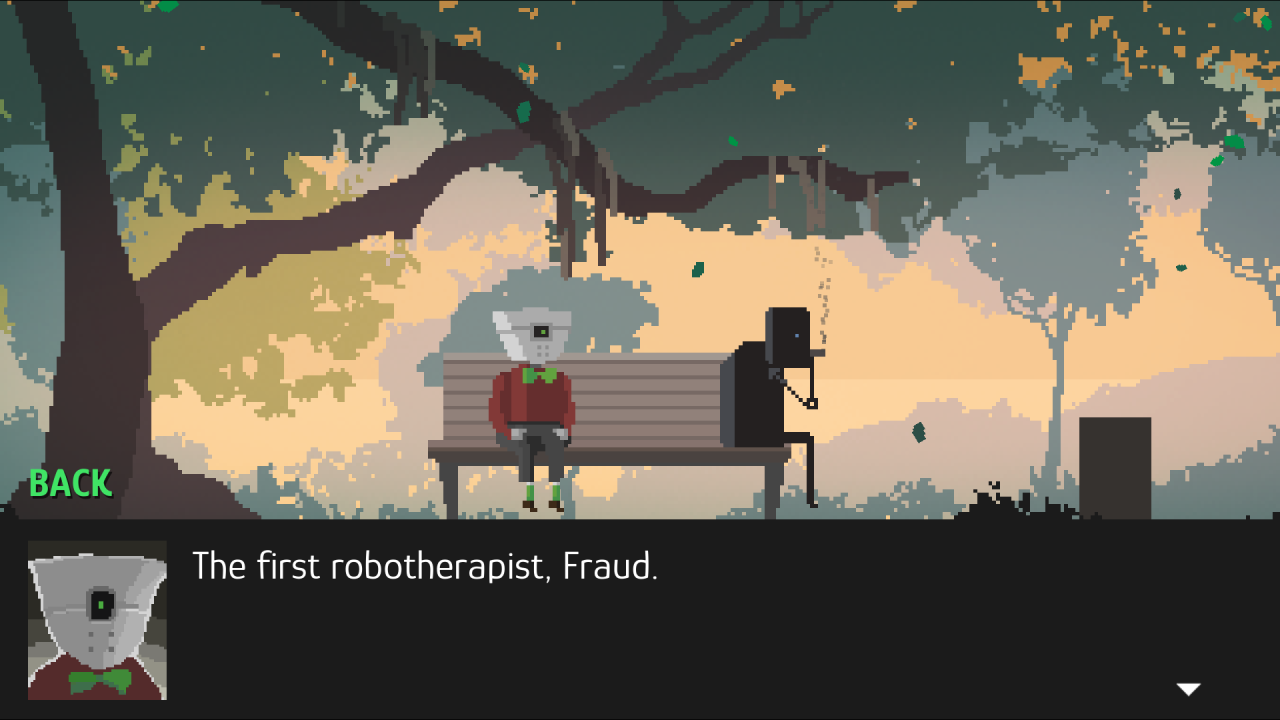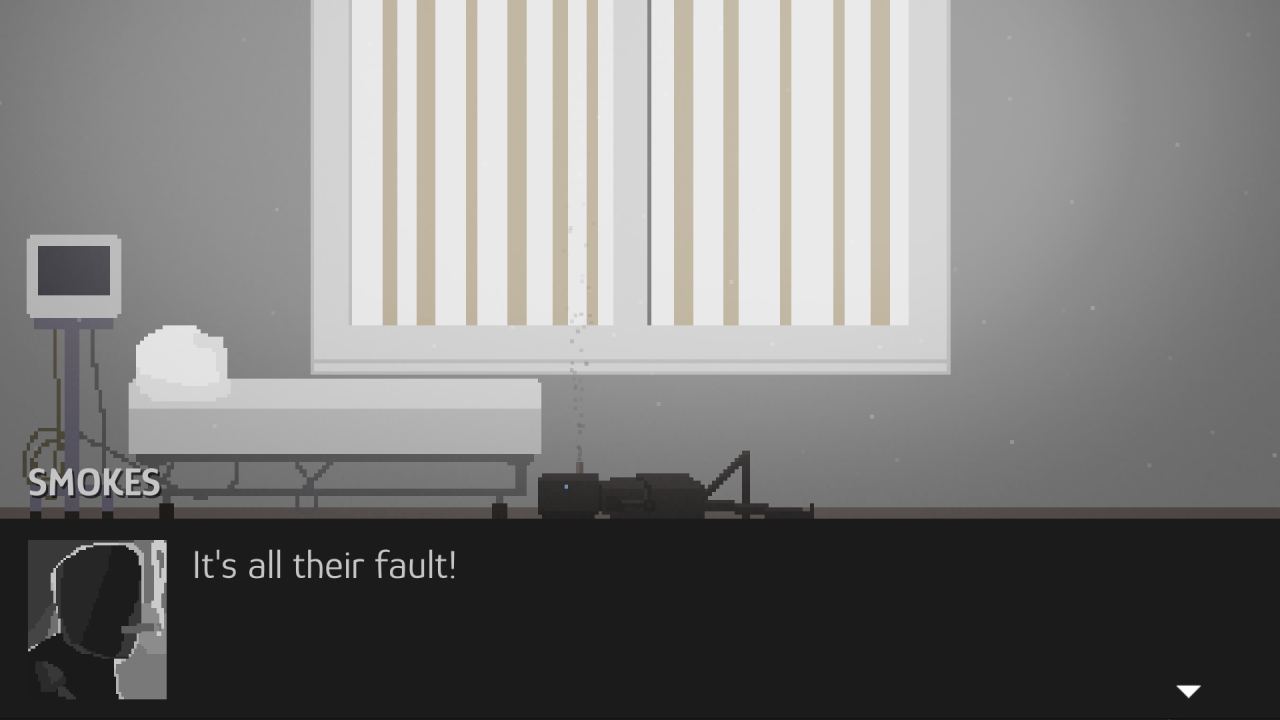Robotherapy‘s premise is intriguing if nothing else. The complete eradication of humankind and the aftermath for the robotic inhabitants of the world is eerily reminiscent of Nier Automata, one of the most enthralling stories I’ve experienced to date. Robotherapy is a graphic adventure, so I wasn’t expecting any action-packed gameplay to complement the plot, but I was eager to see what new perspectives or insightful commentary I might encounter in this new adventure. Disappointingly, there were none at all.
Told from the perspective of Smokes, a robot striving to become the best robotherapist after the genocide of the human race didn’t turn out to be as fulfilling as the robots had imagined, Robotherapy starts off on a strong note. Amusing fourth wall breaks by the narrator coupled with the zany, borderline unhinged personality of Smokes make for an entertaining combination until you begin your first “therapy session.”
Therapy here is used in the loosest sense of the word as Smokes’ complete inability to showcase even a speck of competence at his job is the focal point of these scenes. I could muster a chuckle the first few times at Smokes’ blatant ineptitude, but by the time the first session was over it was clear that this was all he had to offer in terms of personality. Crass and brazen, often not in a particularly funny way, Smokes zooms past any sort of “tough but has a heart of gold” anti-hero territory and lands squarely into being irritatingly juvenile for the vast majority of the story.
At least the game’s astonishingly short runtime of 45 minutes keeps Smokes from grating your gears for too long, but this raises another issue. What narrative depth can realistically be plumbed in a graphic adventure that can’t even get past the one-hour mark? In Robotherapy‘s case, not a lot.
For one, the two patients that you encounter over your reading time do absolutely nothing with the premise of the story. The blurb on the store page would have you believe that a new sort of existential crisis might be plaguing these robots, but their worries felt criminally banal. Not to say that topics like low self-esteem and depression are unimportant, but Robotherapy’s resolution of these struggles doesn’t offer any insight that you haven’t already read in a typical self-help book. The shortcomings of the runtime become especially apparent here as these mundane conclusions also end up lacking an emotional edge thanks to the sparse character development, leading to a wholesome but ultimately hollow reading experience.
Perhaps the therapy sessions could at least provide greater insight into Robotherapy’s themes if the second half of the story didn’t introduce a massive twist that felt both predictable and unexpected. Predictable in the sense that once the game made it clear there was a twist coming, you could immediately guess what it was going to be, but lacking any sort of proper foreshadowing till that point. This drastic shift in focus doesn’t even manage to retain much of its shock value as it treads on all too familiar plot beats before the story slowly peters out.
There’s little replay value to be had either, as Robotherapy is entirely linear despite presenting the occasional dialogue choice. While my first playthrough of being a good samaritan yielded the expected standard responses, I was disappointed to find out in my subsequent playthrough that going nuclear with the dialogue options didn’t change anything at all. Ranging from someone stepping in to steer you in the right direction to characters glossing over direct insults entirely, the blatant illusion of choice left me with a bad taste in my mouth. Seeing this, the lack of a traditional save feature usually found in visual novels made more sense as there is no point in having one anyway; all roads not only lead to the same exact ending, the roads themselves are almost all identical to one another.
I wish I could at least praise the audiovisuals unequivocally, but there’s little that stands out here either. Character designs outside of one or two are incredibly simplistic. When these characters are then given names like “Back” or “Whatever,” seemingly chosen just for the sake of punny introductions, there’s little even at the surface level to grow attached to. The soundscape as a whole is also barren, with the occasional jump-scare-eliciting sfx being the most notable part.
Robotherapy not only falls short of even the most basic of my expectations, it’s completely unremarkable in almost every regard. It fails to capitalize on its premise in any meaningful way, and the story that it does choose to develop struggles with the prohibitively short overall runtime. If you’re looking for a simple pick-me-up, Robotherapy might provide an hour of decent entertainment. But anyone looking for a more substantial experience, this is not it.




